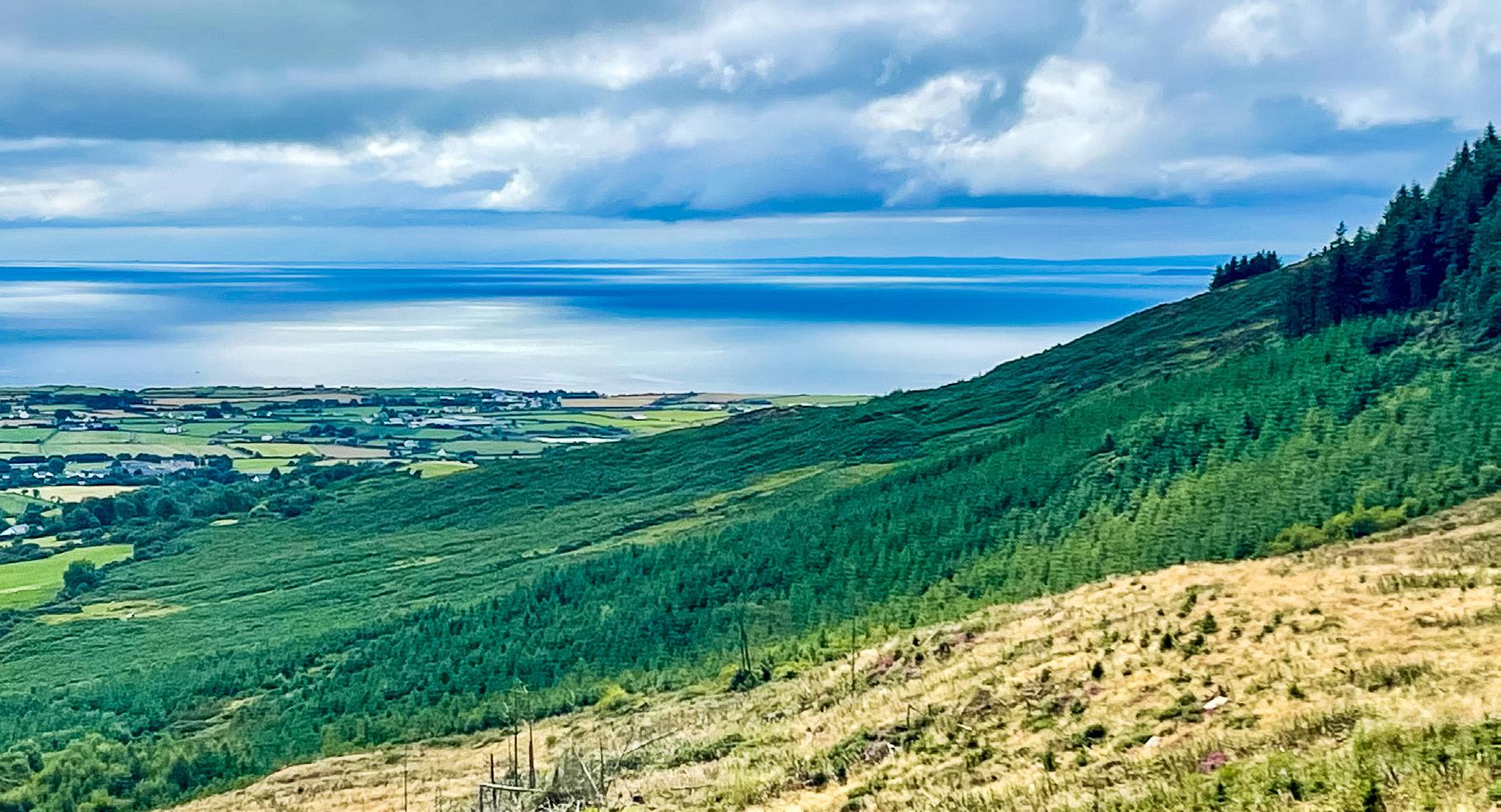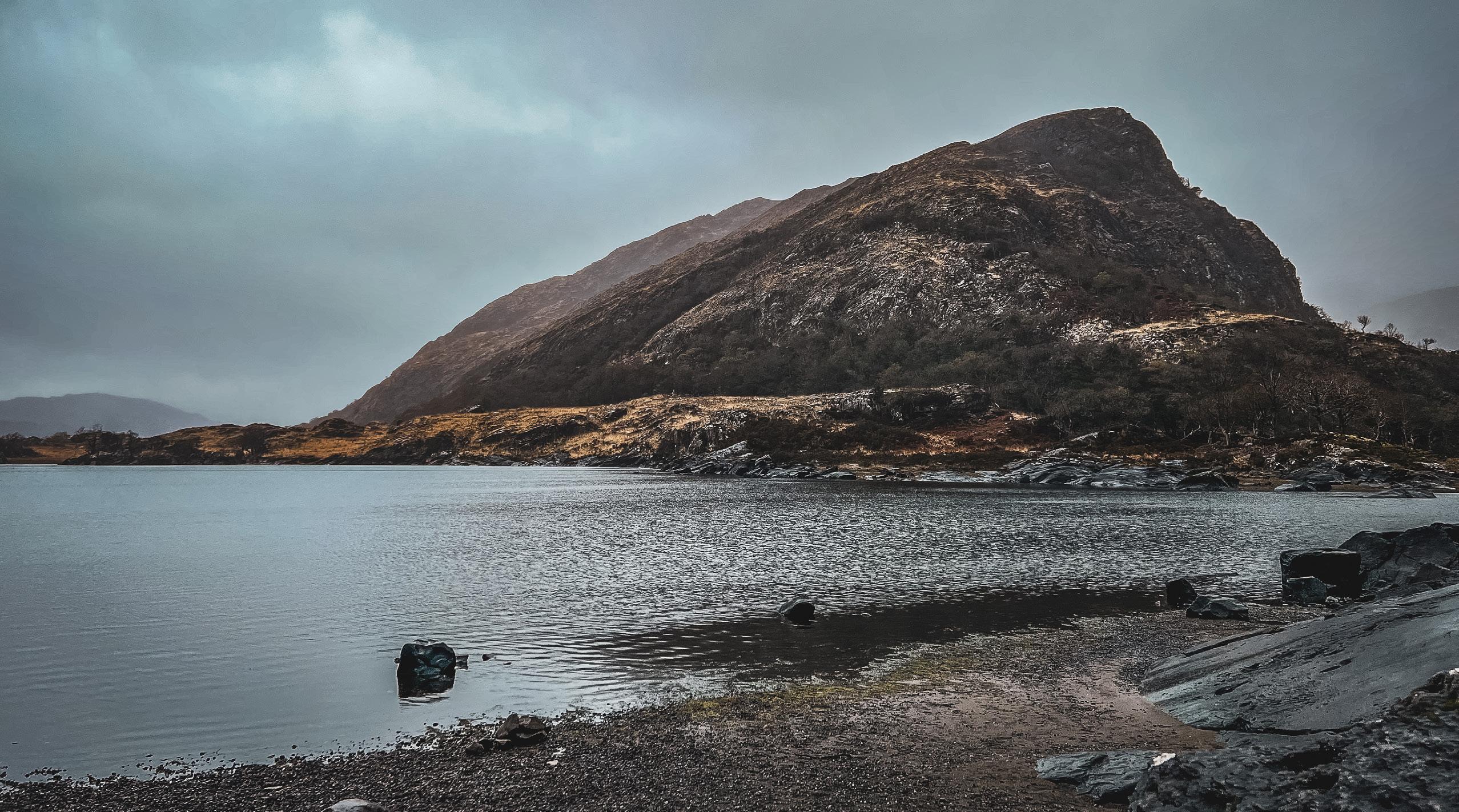
11 minute read
The Poem She Started
A short story by Juliana Amir
The beach sprawled for kilometers in both directions. A trail of ghostly footprints padded in the sand, coming closer, creating a path from the sea. The footprints stopped beside me. I trusted it was my imagination, though I couldn’t be sure, having seen what I had.
Awake too many hours, sleep should have sung to me, but it didn’t. It couldn’t, not until I finally processed the events from months ago. I had always loved open waters, forest hikes, and making my living selling fish to the marketplaces, but something in me was slowing. My eagerness? My heart? For the first time, I thought of nothing. Only felt the sadness in the salty breeze and the collapsing waves, and felt the color of the deepest blue reflected in me. Still, I smiled when the first hint of sunlight split the sea from the sky.
Instantly, her voice was in my ear, whispering: “contagious seems an awful word until you think of a smile. You smile, see it mirrored, and it fills you because you gave a moment to someone, however fleeting, just by moving your lips. Is that not magic?”
And in that faint whisper, I knew she was with me. Her story swelled in my throat each time I gazed at the sea. I stopped feeling and started remembering her. She danced before my imagination. Perhaps the shyest girl on earth. Crowds crippled her with fear. She’d tuck herself behind me. I shielded her through each crowd, her hand in mine, as I carved us a path. She looked faint when people noticed her. She was to me the fairy that was never meant to be seen by human eyes, and yet, she let me see her and all of her vivid emotions.
She definitely cried more than any person on earth. But it was as often a happy tear as it was sad. One Saturday, I brought her a blueberry muffin because, why not? Walking down the cobbled path to her tiny brick house, I thought nothing of it. I handed her the plain paper bag, and when she opened it, she smiled...like a fallen star hid within.
She invited me in, put on the kettle, and brewed heather tea. When it was poured and steaming in two cups, she cut the muffin in half and insisted that it was better shared. We sank into the deflated cushions of her sofa. About a minute after we sat, tears were being absorbed into her muffin.
“What now?” I asked. Because I always said that when I saw her in tears.
“It’s just so beautiful.”
“It’s a muffin! It’s literally flour. And sugar. And whatever else is in muffins.”
“The blueberries are so bright and encompassed in these rings of purple, and it must be the most beautiful breakfast, and I am just so happy that I get to have this moment.” She stared at the muffin.
“Okay,” I said, wondering if she thought me emotionally dense. I studied the blueish spots. I studied them just as I had studied the winter trees dressed in lights, the blinding pink sunrise, the red butterfly that landed on her wrist, and the many, many other things that were also apparently so special.
But now, on the beach, with the wind cutting through my shirt, I saw that these moments were fragments of a time that could not be replicated, despite my younger, sillier notions.
The muffin soaked in one last tear before she stopped crying and continued eating, slowly. She was thinner somehow, even more fragile in appearance than the last time I had seen her, and I had the same thought before.
In my dreams, even back then, she was often in her bed, frail, and vanishing before my eyes, becoming transparent. It would reach the point that I could stand it no longer and forced myself to wake rather than be forced to try to find her in the dream world when she was not there.
“It’s balmy,” I said, to distract myself from the memory of the nightmare. On a whim, I added, “let’s take out the boat.”
A stack of strangers’ clothes to be mended sat on the other side of her. She glanced at it, and I wasn’t proud of it, but I knew if I said please, she would.
“Please.”
“Looks like a storm will roll in, don’t you think?”
“Have you never seen a storm from sea before?” I asked.
I never had to say please twice, but that day, I did.
She sighed. “Let’s take out the boat.” She grabbed her shoes, and it was odd to me that at twenty, that she was already moving slower. I didn’t focus on it, for fear of my nightmare returning to me. I wondered sometimes what we were to each other. Best friends? Family? But we seemed like a category other that, one I had no language for. Adventure partners for twilit wood walks and moonlit sea swims.
We followed the road to the long, stone steps that led down to the little seaside shack that I shared with my papa. She had looped her arm through mine. The longer we walked, the heavier she breathed, and the more I was towing her along.
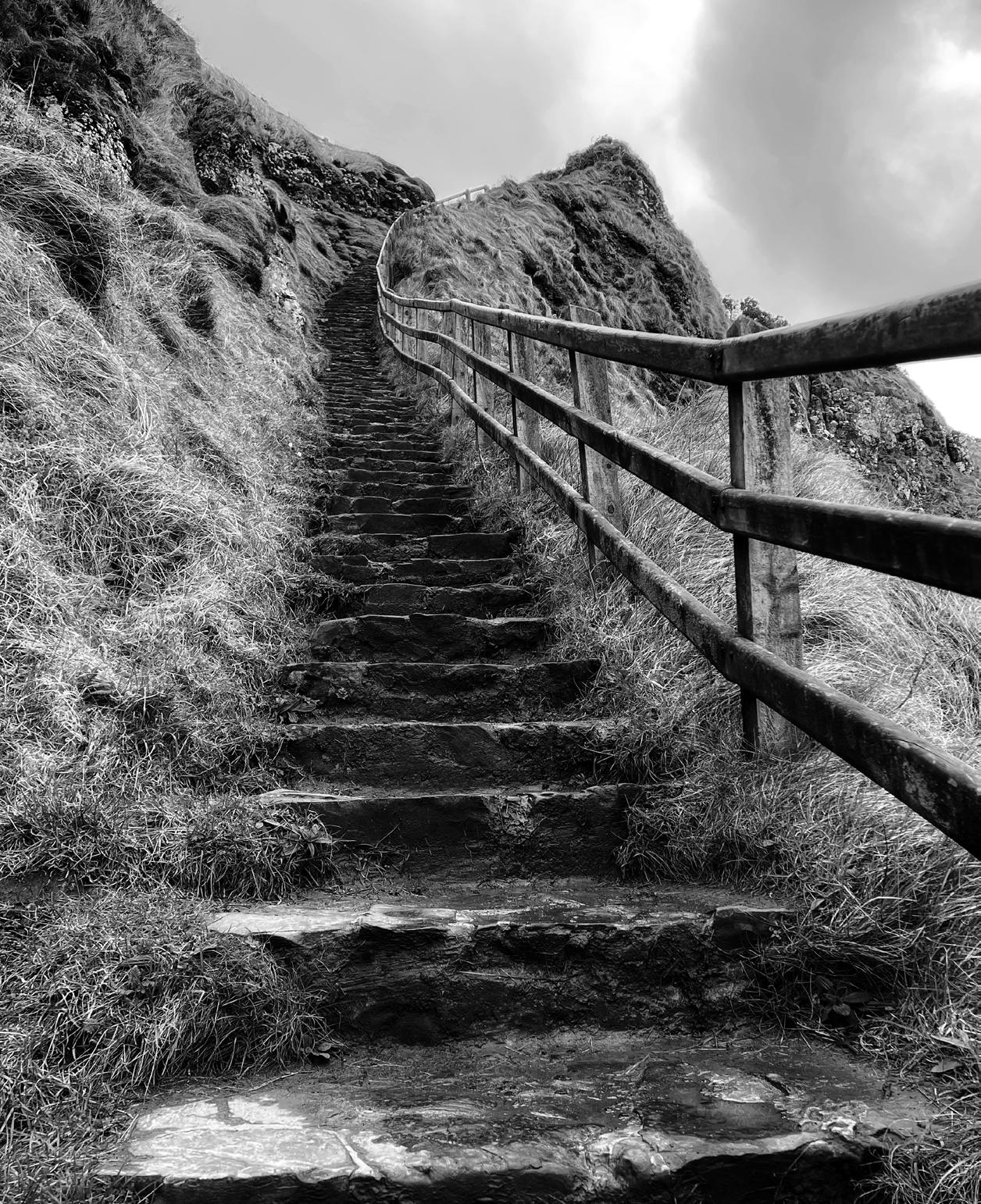
She waited outside the shack as I retrieved the boat and carried it to the water’s edge. She followed me across the shore.
I asked myself now, if I had that day to do over again, would I help her mend holes and sew on buttons instead of saying please twice?
I helped her into the boat, pushed the dinghy deeper into the water, and jumped in with her. My legs were mostly soaked, and some silt was still between my toes. The clouds were charcoal and violet and vast, looming over the saltwater. The sight sent a chill of excitement through me. With the two oars, I paddled out, not too far, and let my mind wander about what we could do next. What could we do tomorrow, and the day after? I could see the shore from our boat. We were surrounded by waters almost indigo in color.
“I have never seen water this exact shade.”
“Don’t cry,” I told her.
“I can’t. I am too stunned by it all. The summer wind feels so warm, so comforting, out here. It makes me think of the tendrils of steam curling off of Mama’s stew. The joy of just breathing in something that nourishes.”
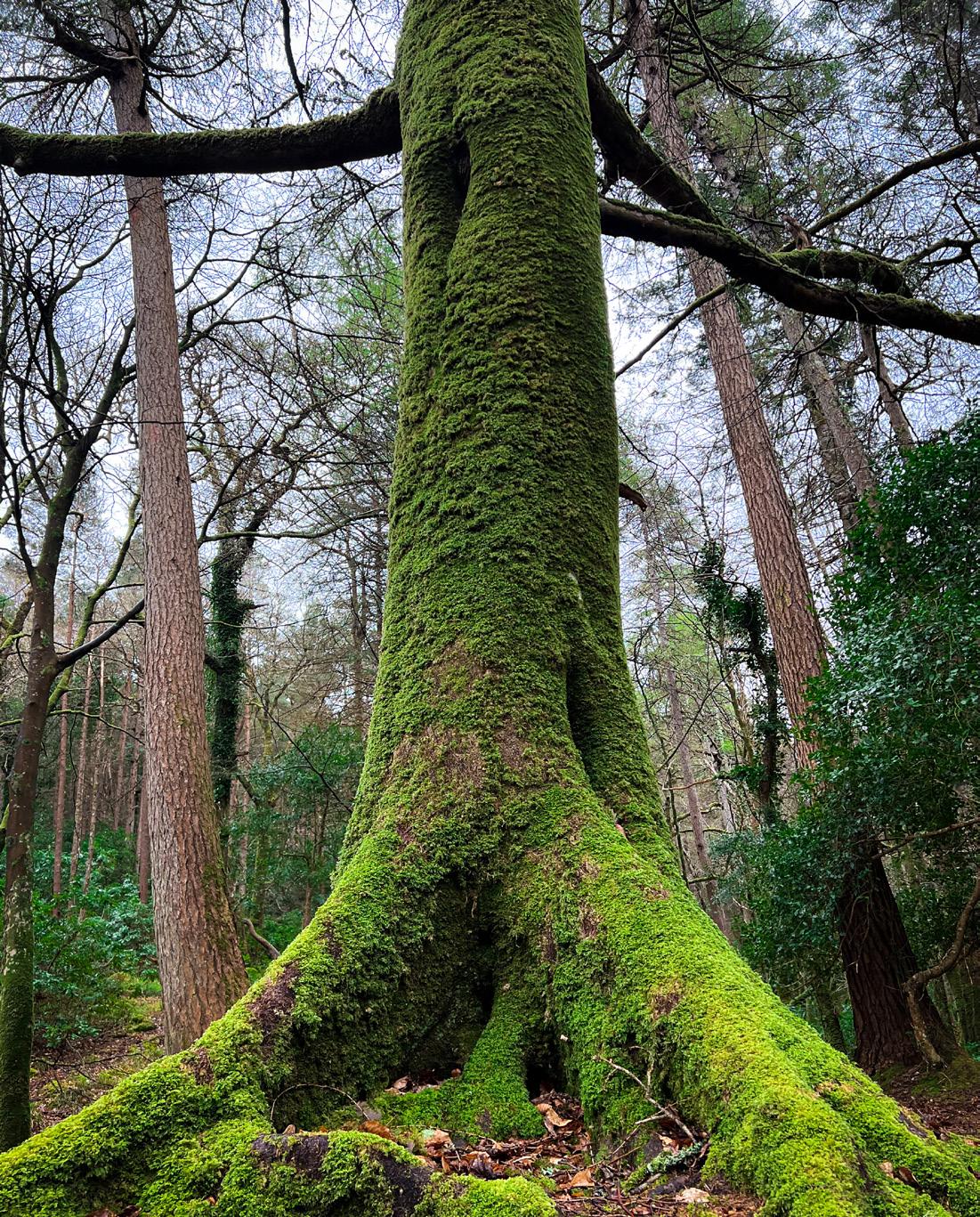
“Your mam made the best stew.”
I don’t know how long exactly our moment stretched, but I noticed the sea towing us out. I rotated the oars and tried to haul us in toward shore. As I rowed and rowed, all the muscles in my torso tightened, but the more I rowed, the further our boat slipped in the wrong direction.
For a moment, I believed I was caught in a nightmare again. I didn’t want her to see my worry, but I did check to make sure she wasn’t turning transparent.
She was solid, and whatever she saw in my eyes, it prompted her to tell me it was okay.
It was not. My view of the land was now swallowed by the sea.
A flash of light zipped through the darkening clouds. The rolling crack sounded like our boat snapping in half, though the dinghy was still whole and bobbing on the surface. If I was by myself, I may have been loving all of this, but not with her, not with precious cargo in my boat.
“It is okay, my dear,” she said.
I wasn’t sure if she had ever called me that before, but thousands of drops started falling at once.
“I can’t see.”
Through the veil of rain, she was there, and I focused on her for a moment before I realized our boat was twisting around, spinning. She came and sat beside me, and though it was hard to tell, I was almost certain she was not crying, which figured, because it was the first time in a decade I feared that I might.
The world, a strange mixture of violet and silver, was whipping around me, until I closed my eyes. She placed her head on my shoulder. Her hand was in mine. I wasn’t sure when that happened, only that it was the only good thing I knew at that moment.
What could’ve been minutes or hours later, I felt her nudging my shoulder. I opened my eyes and saw land, but it was the wrong color. Our shores were cream, and the isle ahead was emerald.
“How is this for our adventure?” she asked.
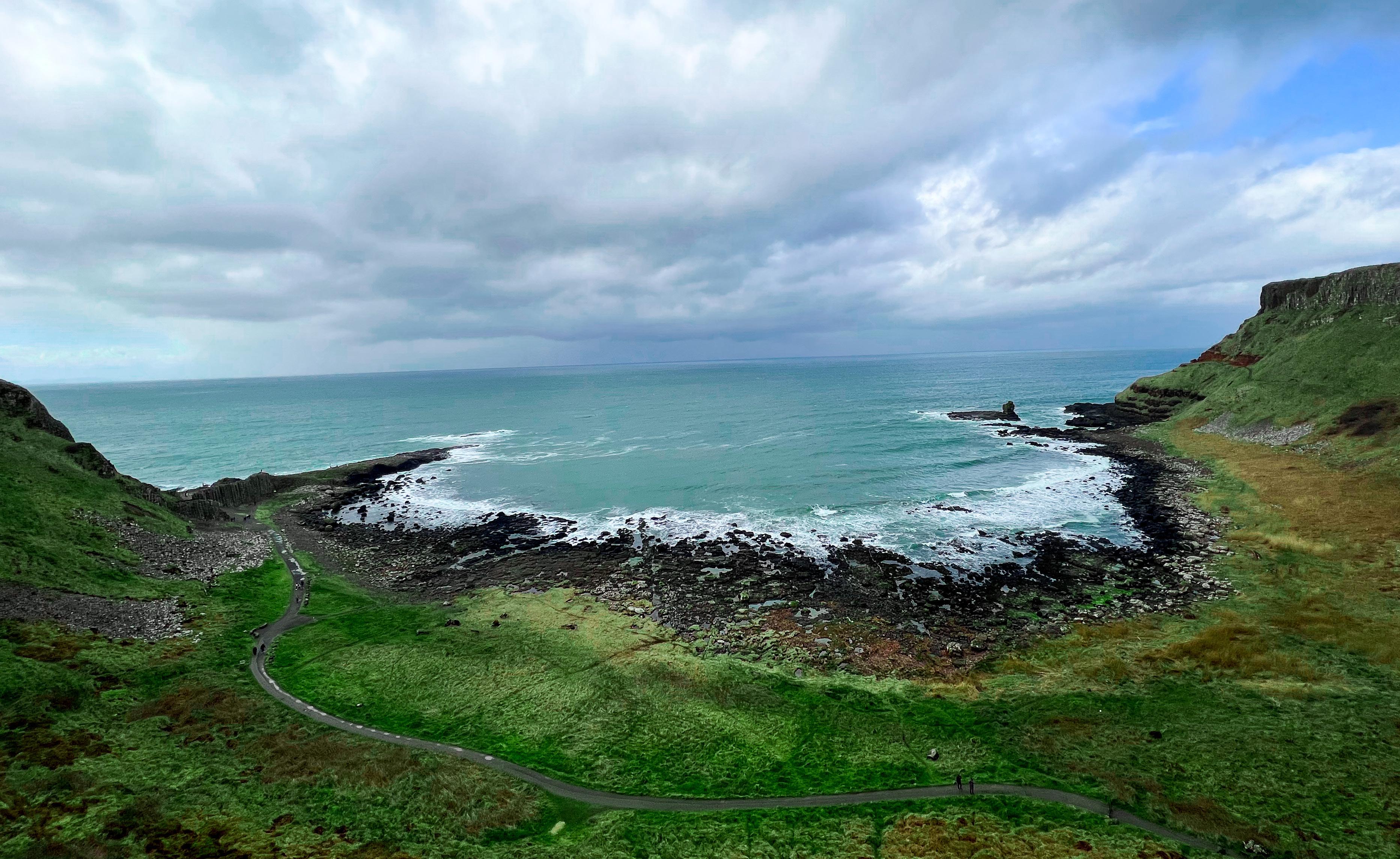
I felt ill. Thankfully, the water did most of the work, pushing us toward a mossy green dock jutting into the sea. The waters were suddenly so clear that I could see red fish drifting below the surface. I glanced to see if she had noticed the giant, jewel-toned fish, and it seemed she looked to me for the same reason.
I took the rope from the dinghy and used it to tie the boat to the dock. She stepped out onto the boardwalk with no help. Her shoes dangled from her fingertips. The breeze tousled her curls. I grabbed my shoes and followed her onto the mossy dock. It was slippery, but also soft underfoot. The overcast sky was a bright silver now, and I knew I should be worried, but all I sensed walking along the dock, with her in front of me in her lavender dress, was serenity.
She tossed a glance back to me, and I was shocked. Her sallow skin was glowing, and her often-tired eyes were bright with a spark I hadn’t seen in years.
She said, “Catch me,” and I thought, Always.
She took off running down the boardwalk and through a meadow of purple wildflowers. I was always quick, but suddenly, so was she. When I caught up to her, I picked her up by the waist and spun her around—my fear of her being fragile, forgotten, all of my fears, forgotten.
I knew I should be worried about getting home, but when I set her on her feet, she took off again, turning back to make sure I was following her through the grass, closer to the wall of trees. I saw her shoes discarded and threw mine too. I followed her through this island that seemed long forgotten. And yet, I had an eerie sensation growing stronger with each moment that we were being watched.
“Look who is falling behind today?” she called, twirling. Her voice, usually soft, was full and bright.
I quickened. The earth was still covered in grass, flowers, and moss, even as we moved through towering trees with dark bark and blue and green leaves arching overhead. The world that I thought I knew every shade of looked new. I couldn’t help but try to drink in each moment as it came to me.
We crossed a river. She took my hand and we made it to the other side. We found ourselves by a crystal blue pool of water with a waterfall pouring down from high above, and I wondered how I could get up there. The water misted our skin where we stood and rainbows of color filtered through the mist in maybe the most staggering visual of my life.
In one of the trees was a bird with a feathered tail that cascaded from its perch. When it saw me observing, it flapped its wings and soared away into this mystical land.
“Do you see the glimmers of light in the trees? It reminds me of something my mother said about fairy wings.”
“Your mam always told us the best stories,” I said.
“The very best,” she added. “This place reminds me of one.”
“Tir na nÓg,” said a voice behind us.
I would’ve thought it my imagination if she had not turned around with me in the direction from which it came.
“Odd. Sounded like that came from a branch,” I said.
“Or maybe even a fairy, or a star not yet visible.”
Something about the disembodied voice raised the hair on my neck. The eerie, queasy feeling was worse now.
“Maybe, it is time to make our way to the boat.” The fear, familiar to me, was returning.
“I can’t.”
“Why?” I asked. “What’s wrong?”
“Nothing, but that is just it. I feel good. Nothing hurts. I have energy. The energy I haven’t had since I was a child. I want to stay here. I feel…it’s right.”
“We haven’t seen one other person.” A colossal green leaf came swirling down. “There is nothing here.” Though we’d seen little of the island, I wanted to believe it.
“I don’t believe that is true,” she said. “And here, I can just exist.” She gazed up past the waterfall, so high, that it seemed to pour from the clouds.
I rubbed the back of my neck. I was always the one convincing her, and now that it was the other way, I didn’t know what to say. We knew the stories of Tir na nÓg. Mortals could not stay forever. They could only last a number of days. No one knew how many, but it was a number divided by three, which meant in less than a month, or a week, she would be gone. It was her own mam who warned us of that.
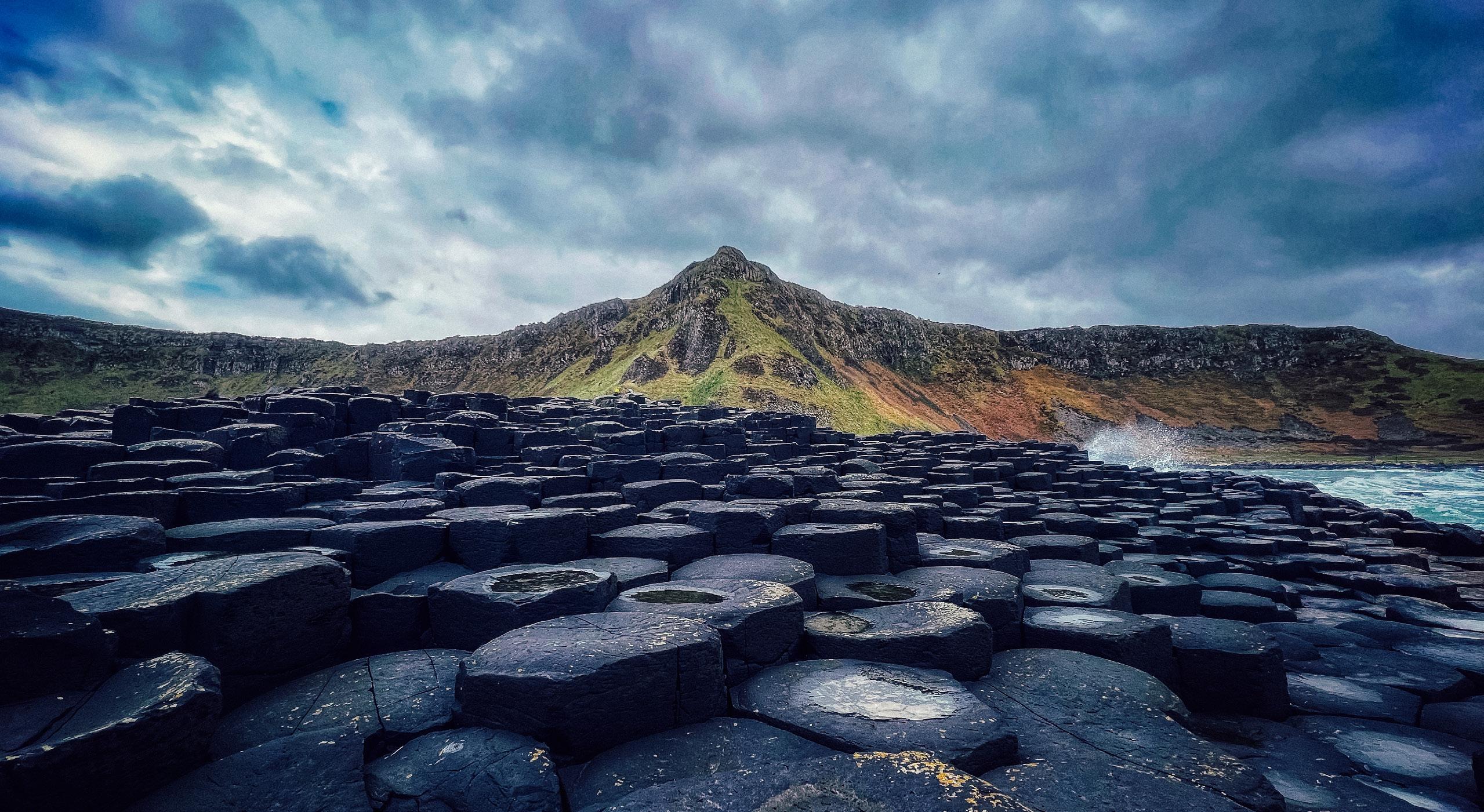
As if reading my thoughts she chimed in,
“I would rather have one week to be well than a year of feeling myself disappear.” She placed her hands on my neck. Her hands had been shockingly cold for so long, and this time, I was shocked because they weren’t.
She kissed my cheek. “You should go.”
“Not without you.”
“You have so much more to experience and to enjoy.”
“So do you.”
The look in her eyes made those three words feel like fiction, but the thought of separating shattered my heart just as it did each night I spent trapped in the nightmare.
She nodded and glanced in the direction we came. I found myself following her. With every step back to the boat, I left another shard on the island with her. The same bird I saw earlier flew in a pair now, and disappeared into the pink foliage.
I grabbed my shoes from their resting place in the grass. Maybe she would collect the pieces. Maybe she would make my heart whole again, the same way she mended holes or quelled my spirit when it felt it was going everywhere at once.
Back on the mossy dock, I eagerly took her hand, this time with no crowd to use as an excuse. Maybe we weren’t simply adventure partners, but two parts of a shared spirit. I had the feeling that she already knew this, maybe months ago, or even years.
I didn’t know how I would find my way back alone, but she believed this place was meant for her, and we knew the opposite was true for myself. Her eyes still reassured me it would all be okay.
She didn’t seem to have any words to say, and I had too many, so I released her hand and stepped into the dinghy. Just as soon as I untied it, the water began pulling me out as it had once pulled me in.
I locked my eyes on her, her dress and hair dancing in the wind, her bare feet hidden in the moss, melancholy and relief in her soft eyes.
It was sudden, too sudden, but soon I was in a haze of mist. I took the oars and rowed back. I rowed back for so long, my arms and torso burned and I didn’t dare stop and I didn’t understand anything. I understood even less when I saw the familiar, empty cream shore.
Standing there now, I told her, “I would do it all again to see that spark,” as if she were beside me, and I believed she was. She left lines of poetry inside of me that weren’t there before I met her.
Remembering that abnormal twist on an ordinary day, I called to mind my last image of her as the waves carried me away—she was well, she was radiant, and she was without tears. That was the gift of Tir na nÓg.
Now, it was I who cried at the sight of a blueberry muffin as often as I smiled.
